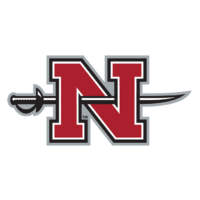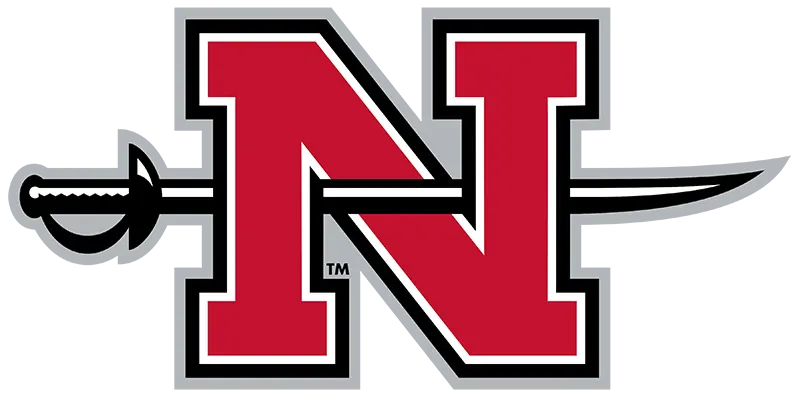CAREER READY COLONELS

Nicholls State University's Third Quality Enhancement Plan
In December of 2023, the Quality Enhancement Plan Development Committee was formed from volunteers across all areas of campus. The committee represents a diverse and varied group of faculty, staff, and students from all campus units, in both academic and non-academic areas. At the same time, the extensive efforts of many Nicholls community members to refine the implementation of the 2023-2028 Strategic Plan was well underway. Thanks to the comprehensive efforts of the Strategic Planning Committee, QEP development efforts were provided with data and resources to help them begin the process of exploring potential topics for the QEP. The strategic plan’s implementation phase helped the QEP committee identify institutional priorities already in motion, ensuring that the new QEP would build upon existing momentum and align with long-term university goals for sustainability.
Why do we need to develop a QEP?
The Quality Enhancement Plan (QEP) is an integral component of the reaffirmation of accreditation process and is derived from an institution’s ongoing comprehensive planning and evaluation processes. It reflects and affirms a commitment to enhance overall institutional quality and effectiveness by focusing on an issue the institution considers important to improving student learning outcomes and/or student success. The QEP is developed by a committee representing all areas of campus and seeks input from as many university stakeholders as possible. You can view a list of the committee members here.
What is the focus of the QEP?
This Quality Enhancement Plan proposes increasing opportunities for and increased participation in program-guided, curriculum based career readiness activities. The focus of the QEP is to incorporate clear academic pathways, co-curricular experiences, and effective services to students while fostering their learning and career development, preparing them for life and career success. This QEP will involve students in practical, curriculum-based, career readiness experiences that will prepare them for life and career success.
The QEP Development Committee decided to narrow the focus of this plan to three competencies:
- Critical and Creative Thinking: Identify and respond to needs based upon an understanding of situational context and logical analysis of relevant information.
- Communication: Clearly and effectively exchange information, ideas, facts, and perspectives with persons inside and outside of an organization.
- Professionalism: Knowing work environments differ greatly, understand and demonstrate effective work habits, and act in the interest of the larger community and workplace.
The National Association of Colleges and Employers (NACE) describes career readiness and career competencies as follows:
“For higher education, career readiness provides a framework for addressing career-related goals and outcomes of curricular and extracurricular activities, regardless of the student’s field of study. For employers, career readiness plays an important role in sourcing talent, providing a means of identifying key skills and abilities across all job functions; similarly, career readiness offers employers a framework for developing talent through internship and other experiential education programs.”
https://www.naceweb.org/career-readiness/competencies/career-readiness-defined
Definition of Career Readiness
For the purposes of this QEP, the development committee has accepted the following definition of career readiness.
Career readiness is the ability of students to demonstrate key workplace competencies—such as critical thinking, communication, and professionalism—through integrated academic, co-curricular, and experiential learning experiences. At Nicholls State University, career readiness is embedded in a vibrant campus culture, preparing students not only for successful careers in a global economy but also for meaningful lives within the Louisiana Coastal Community and beyond.
What is the scope of the QEP?
The scope of this QEP will include a campus-wide initiative to establish or enhance curriculum-based, career readiness experiences for as many students as possible, including our online learner population. This proposal recognizes that some academic programs have established experiential learning activities embedded in their degree programs, while some do not. With the establishment of this QEP, it is the university’s intention to help increase the number of opportunities to participate in experiential learning opportunities to students in degree programs that may not have such established experiences while supporting the academic disciplines in developing these opportunities.
Proposed Learning Outcomes
The following are the proposed student learning outcomes for this Quality Enhancement Plan. While they will be refined in the next few months to better reflect the intention of this QEP, what we present below are the framework we will use to thoroughly develop our plan.
Proposed student learning outcomes:
- Demonstrate decision making and problem solving using sound, inclusive reasoning and judgment.
- Gather and analyze information from a diverse set of sources and individuals to fully understand a problem.
- Communicate the importance of and demonstrate verbal, written, and non-verbal/body language abilities through experiential learning opportunities.
- Employ and demonstrate active listening, persuasion, and influencing skills and relate those skills to their potential career.
- Demonstrate integrity and accountability to self, others, and the organization during experiential learning opportunities.
- Communicate a positive personal brand in alignment with organization and personal career values through reflection on experiential learning opportunities.
- Demonstrate dependability (e.g., report consistently for work or meetings).
Proposed Program Outcomes
In order to help students gain professional competencies and career readiness skills, this QEP will work to do the following:
- Increase the number of opportunities for students to participate in program-guided, curriculum-based career readiness activities.
- Increase the number of students participating in program-guided, curriculum-based career readiness activities.
How will we get this all done?
To support the enhancement of career readiness through experiential and work-based learning, the following actions will be implemented across the timeline of the QEP. Each action aligns with the identified student learning outcomes (critical thinking, communication, and professionalism) and program outcomes (increased opportunities and participation in career readiness experiences). The following list is not inclusive of the entire action plan, it only highlights the more important actions to be implemented.
- Hire a dedicated Industry Partnership Coordinator to build and sustain relationships with employers, coordinate student placements in internships and industry-based projects, and facilitate feedback loops that align with NACE career readiness competencies.
- Collaborate with departments to design new experiential learning opportunities or courses in disciplines that wish to create new experience or expand on already established experiential learning opportunities.
- Increase work-based learning placements and experiential opportunities in partnership with Career Services and local industries.
- Partner with campus employers (e.g., library, rec center, residence life, academic departments, graduate studies) to enhance the career relevance of student employment.
- Develop a framework for integrating NACE competencies into job descriptions, training, and performance evaluations.
- Track and document opportunities and participation rates in experiential learning.
- Revise the Freshman Reflection Piece (FRP) to include plans for experiential and work-based learning, linked to career readiness goals.
- Embed reflection assignments at the junior/senior level within capstone or upper-level courses, customized per department.
- Continue SAM advisor training with expanded modules on career readiness, use of the career guide, and milestone support.
- Work with academic programs to develop curriculum-career maps that highlight degree-specific career milestones.
- Establish career coach role within academic colleges or departments to collaborate with the Industry Partnership Coordinator in facilitating internships, mentoring students on career readiness competencies, and supporting integration of experiential learning into academic pathways.
Allignment with University Mission, Strategic Plan, and Academic Master Plan
Alignment with University Mission
The definition of career readiness closely mirrors NACE’s focus on foundational competencies that prepare graduates for lifelong career management and workplace success. It integrates the Nicholls mission by acknowledging the role of a “spirited campus environment” and preparing students for both careers and life. The definition also reflects the university’s strategic emphasis on academic pathways, co-curricular engagement, and wellness services as part of a holistic approach to developing readiness for career and life success.
Alignment with the University’s Strategic Plan
This QEP works to uphold our university’s work to prepare students for careers in addition to upholding parts of the 2023-2028 Strategic Plan.
Pillar 1 of the strategic plan, the student experience, describes a campus where students will experience “clear academic pathways, co-curricular experiences, and effective services … while gaining career readiness skills to prepare for life and career success.”
Pillar 2, the academic experience, defines a university that will help to “meet current and future needs of our coastal region, nation, and world.” Specifically, our strategic plan sets out expectations for “enhance(d) student success by providing access to experiential learning opportunities… focusing on employer needs.”
In both cases, this QEP directly contributes to the university mission and our current strategic plan by working to contribute to the desired outcomes while empowering academic departments to prepare students for careers.
Alignment with the Nicholls State University Academic Master Plan
The university’s Academic Master Plan (AMP) established academic priorities and assisted in achieving the university’s strategic plan goals. Many of the goals of the AMP are aligned with initiatives of this QEP, further strengthening the ability of this QEP to impact change on campus.
This QEP aligns with the following AMP objectives:
- Objective 2.4: Enhance and expand relationships with current and potential employers within and beyond the Bayou Region.
- Objective 3.1: Develop a University-wide framework for high-impact practices in the classroom and ensure their successful execution.
- Objective 3.2 Provide an environment focused on supporting and maximizing the students’ experiences and subsequent engagement in campus life.
- Objective 3.5: Promote the development of broad competencies in students by adopting institutional learning outcomes aligned with general education and degree program learning outcomes.
This QEP will allow for increased connections with employers willing to host students for job shadowing, internships, and other experiential learning opportunities. With the introduction of the career competencies in the University Studies 101 courses, this plan will build the foundation for the university-wide framework for high-impact practices both in and out of the classroom. This plan will also support a more vibrant culture of student engagement by promoting program-guided curriculum based career readiness activities. The career competencies that make up the focus of this plan directly align with both the university’s general education competencies and those of the University of Louisiana System.
QEP Feedback/Inquiry/Interest Form
Please use the form below to send questions, comments, or inquiries about joining the writing of our QEP to the committee.

